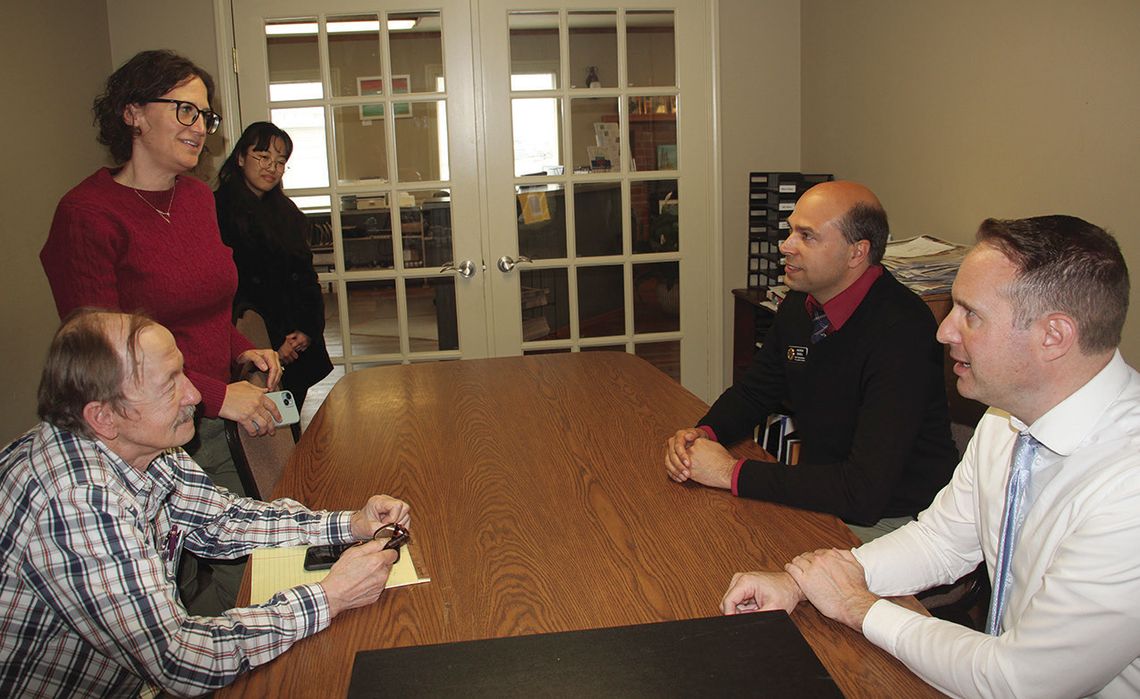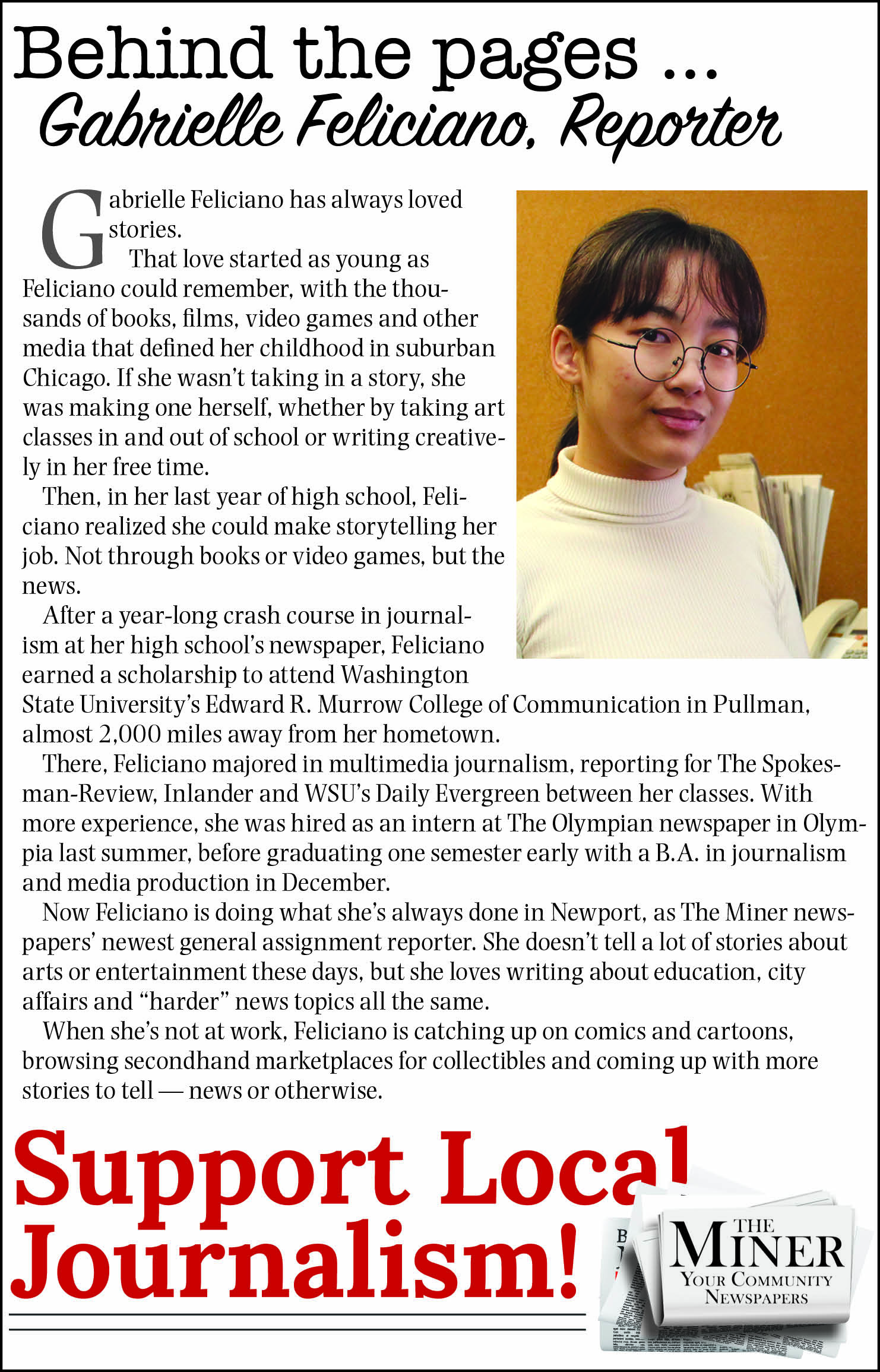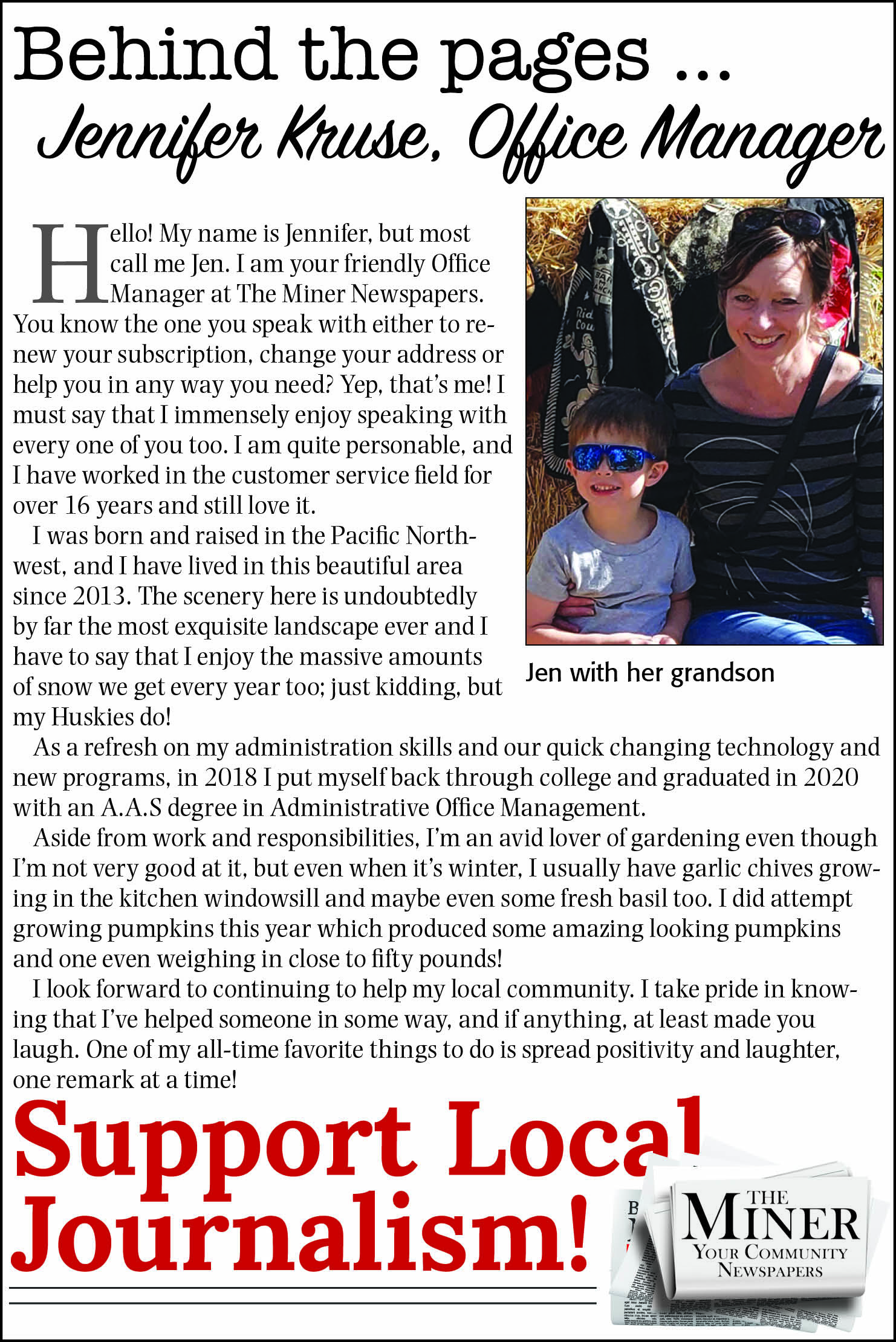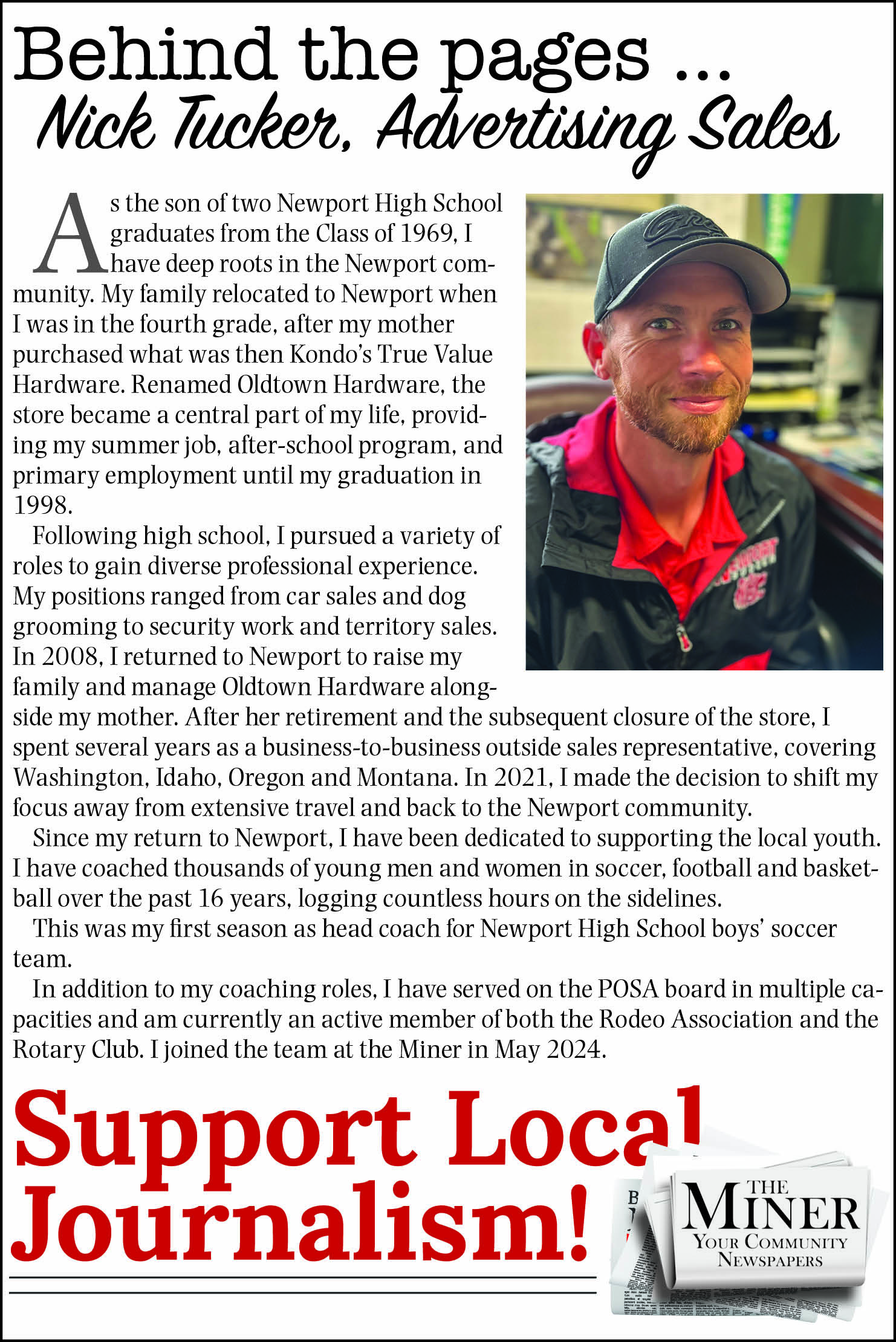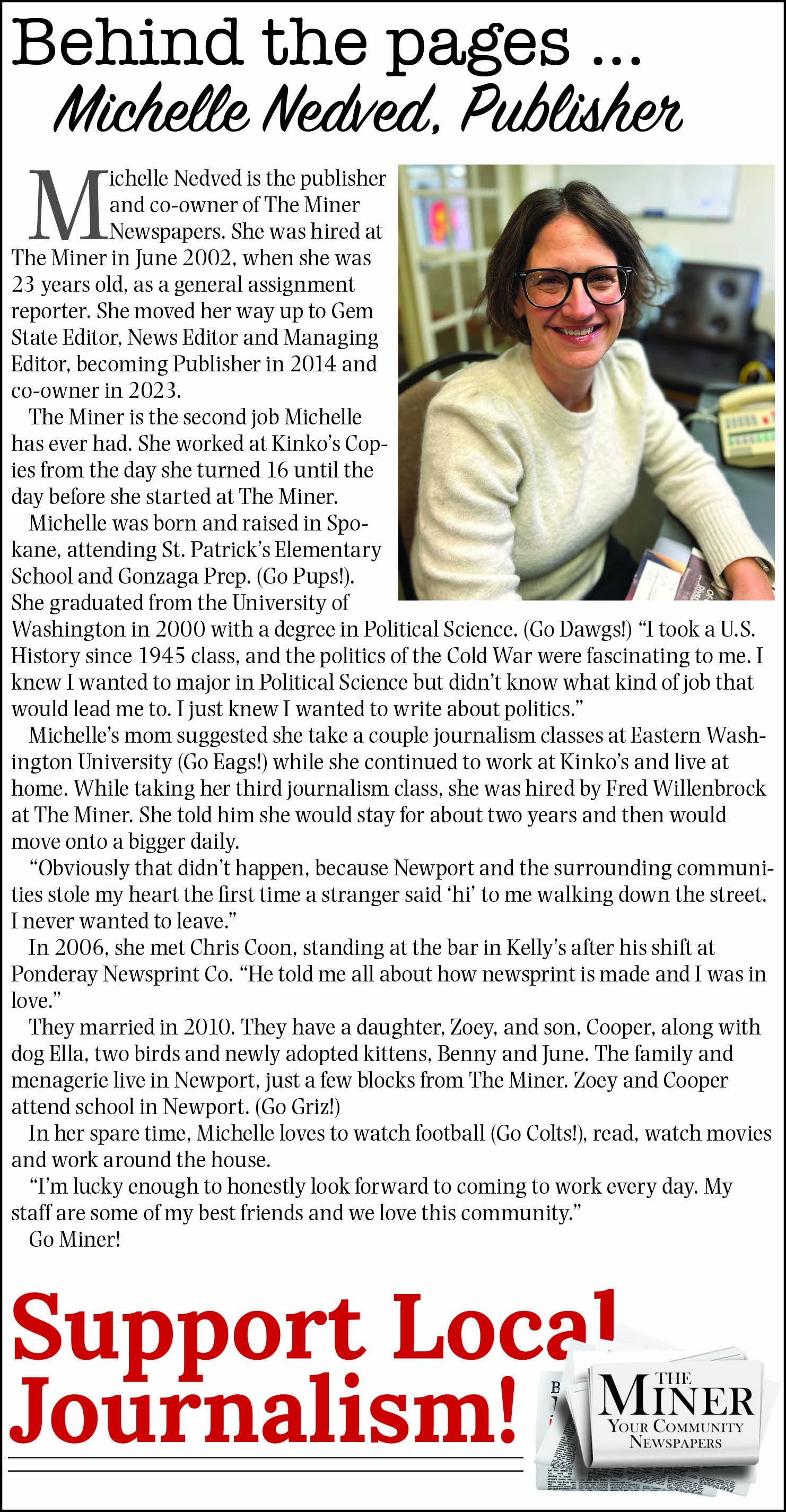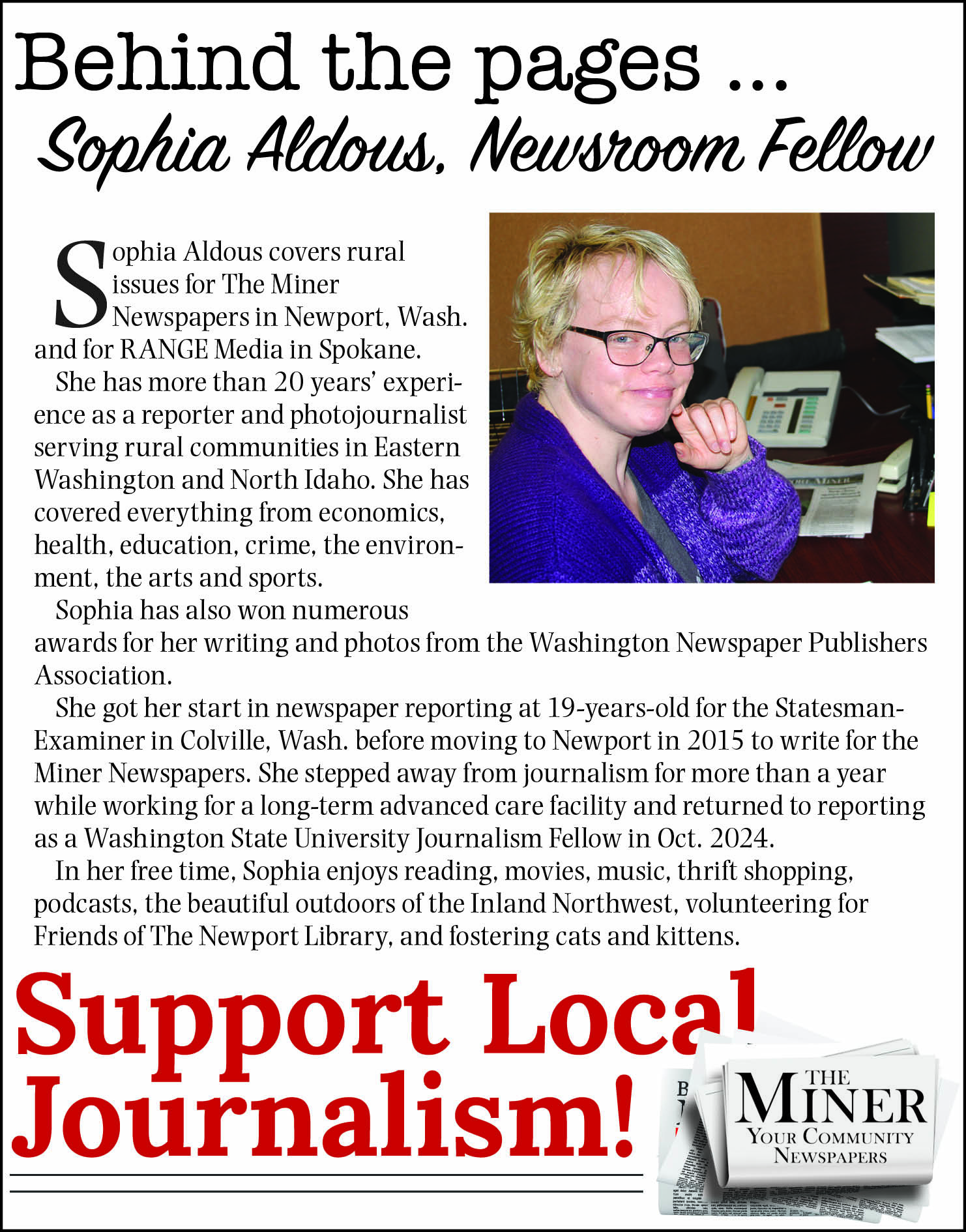NEWPORT — Being a first term state representative, serving in the party that is in the minority has its challenges, Hunter Abell, R-Inchelium and Andrew Engell, R-Colville said in an interview with The Miner Thursday, May 15. The pair were touring the 7th District to give an update on the legislative session, which concluded April 27.
“Our predecessors helped,” Abell said, referring to Reps. Joel Kretz and Jaquelin Maycumber, the two Republicans who represented the 7th Legislative District before them. So did current 7th District Sen. Shelly Short, R-Addy. Abell was elected to the seat Kretz’s former position and Engell to Maycumber’s.
Both Engell and Abell have had some experience with how things get done in Olympia.
Engell had spent years working for retired U.S. Rep. Cathy McMorris-Rodgers, R-Spokane.
“My time working with Cathy helped,” he said. While McMorris-Rodgers worked at the federal level, Engell said many of the issues were similar.
“I was probably familiar with about 80% of the issues,” said Engell, 44.
Abell, 45, said when he was in high school, he had been an intern for then-7th District Rep. Steve Fuhrman, so Olympia wasn’t totally unfamiliar to him.
Still, working as first year legislators in a party that is in a distinct minority took some effort.
Democrats outnumber Republicans 59-39 in the state House of Representatives. The Democratic Party also holds the Senate and the governorship.
So it was an accomplishment when Engell had a bill signed into law that made small water systems, known as Group B water systems, more affordable and accessible. The bill unanimously passed in both the house and senate. Abell co-sponsored the bill, which essential removed the middleman for small water systems to be approved. Group B systems with fewer than 10 service connection will no longer be required to be owned or operated by a satellite system management agency.
The state Department of Health wasn’t initially in favor of the bill, but local health districts, such as Tri County Health, did support the bill.
“It’s going to make it easier to build,” Engell said.
Abell served on the Civil Rights and Judiciary, Environment and Energy and Rules committees. Engell served on the Agriculture, Natural Resources, Housing and Health Care and Wellness committees.
The Housing committee passed another bill Engell voted for that would make it easier to convert vacant commercial buildings into apartments by making zoning easier.
“That would help urban and rural areas,” he said. U.S. Rep. Michael Baumgartner is working on similar legislation at the federal level.
Abell said one of the things that made Engell effective on the House committee is that he is a small landlord.
One of Abell’s concerns was how much school district superintendents were paid. He said there were superintendents earning as much as $400,000 annually, which he said is too much.
“And it’s not just superintendents, it’s assistant superintendents too that make hundreds of thousands of dollars,” he said. “There used to be a public services component to public service.”
Abell introduced legislation that would have required a two-thirds majority vote in the Senate for Supreme Court and Court of Appeal gubernatorial appointments.
“Most Supreme Court judges are appointed,” Abell said. When a judge retires mid-term, the governor appoints the successor. Then they are the incumbent when they run for election. That undermines people’s confidence in the judicial system, he said. Abell is an attorney and a former state bar association president.
Abell had a bill he sponsored pass the House that would have broadened the Veteran Affairs Advisory Committee to include a member from state veterans’ homes, a federally recognized tribe, a current member of the Washington National Guard and an individual with lived experiences facing barriers to housing, such as post-traumatic stress recovery and substance abuse disorder.
“It was named after Jim Judd, a well-known Inchelium veteran,” he said. When it crossed over to the Senate, it was amended to include a person with a felony conviction. “I had to kill it,” he said.
Abell and Engell said they had to deal with a House Democratic Party that included a more left-leaning faction. That faction was often at odds with Democratic Party leadership.
The pair said working in a minority party required they decide what to spend time and energy opposing.
“There was a lot of sensationalism,” Engell said. He couldn’t fight everything he disagreed with. “There were a lot of bills that I was actually concerned about.”
Engell and Abell said they worked to be principled conservatives, taking positions that were fact-based, genuine and brought something new to the discussion.
“We tried to be workhorses, not show horses,” Abell said.
They said Gov. Bob Ferguson was somewhat of a surprise. Ferguson didn’t run as a moderate but when he got elected, that’s how he spoke, much to their surprise.
“He’s much more willing to engage with Republicans,” Engell said, unlike former Gov. Jay Inslee.
The Democratic legislature passed a budget that included a wealth tax, which Ferguson said he wouldn’t sign.
The legislature faced a $15 billion two-year deficit that had to be dealt with. Abell said tax increases were not needed, as there was enough revenue coming in.
“Revenue was going up 2% but increases were 8%,” Abell said.
A 6-cent-a-gallon gas tax increase was likely to pass, with further increases each year tied to inflation. That would impact rural counties like those in the 7th District.
There were many other measures they opposed, including firearms registration, hunting and fishing license fee increases and increases to the Discovery pass.
Fergerson signed the firearms legislation May 20. Starting in two years, House Bill 1163 will require those interested in purchasing guns to apply for a five-year permit through the Washington State Patrol. Applicants must pay a fee and have completed a certified firearms safety training program within the past five years, with limited exceptions. Abell and Engell both voted against the bill.
Engell especially opposed the Discovery Pass fee increase. His family wasn’t wealth and growing up, going to state parks was a cheap form of family outings. Plus, the idea of paying to access public lands was troubling.
The hunting and fishing license increases will likely be unpopular here.
Overall, they say the Democratically controlled legislature passed an overly expensive budget, one that required the biggest and most unnecessary tax increases the state has ever seen — some $12.9 billion at the state and local levels. The state has doubled its budget in the last 10 years.
The Republicans were able to kill some bills, including a proposal to further regulate woodstoves. Short’s legislation on wolf management and providing money for deer and elk crop damage was a win. While Abell didn’t get his bill to hire more police officers through, some funds were included in the budget for that.
.png)

